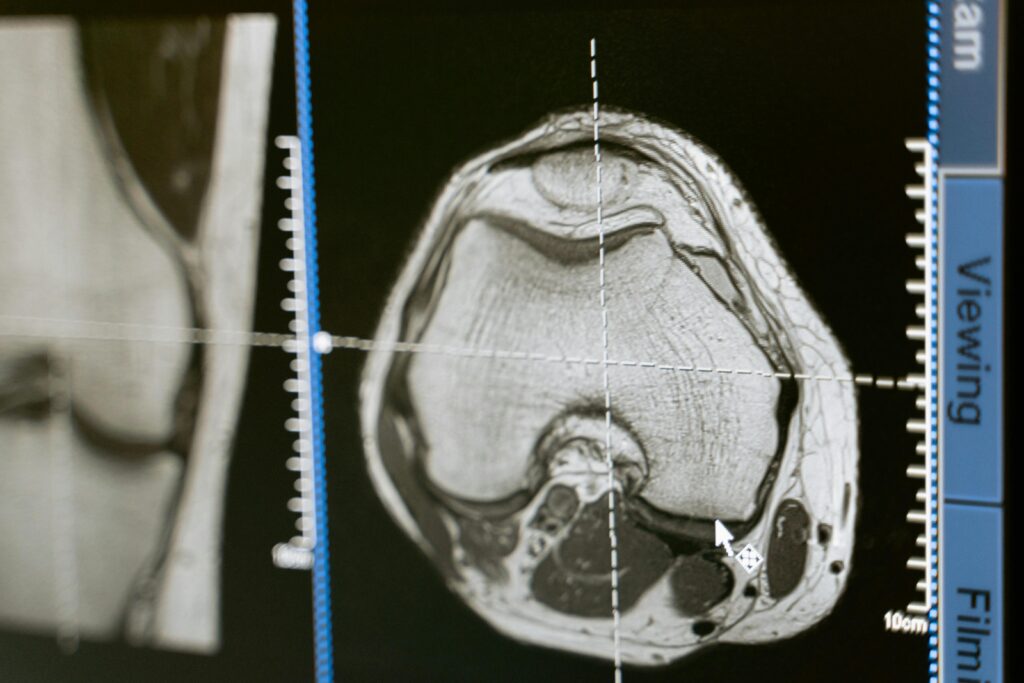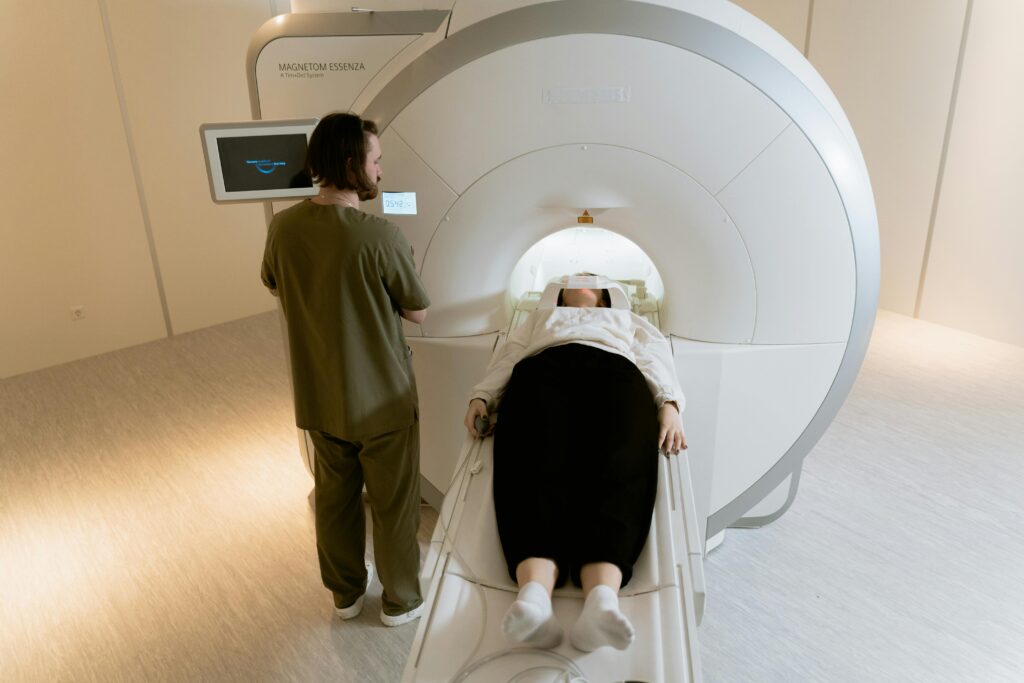A medical innovation that has significantly advanced medical treatments, magnetic resonance imaging has helped doctors see inside the body. MRI scans are a non-invasive and relatively safe procedure. However, new research mildly contests this safety. Studies reveal that MRI contrast agents could trigger the formation of toxic metal nanoparticles in human tissue.
Scientists discovered that oxalic acid, a compound found in many plant-based foods, can interact with gadolinium to create toxic nanoparticles. Gadolinium is a metal that is used as an MRI contrast agent. MRI contrasts are injected into the body to highlight water molecules to create higher resolution images during a scan.
What Scientists Discovered About MRI Contrast Reactions
Researchers at the University of New Mexico found that oxalic acid interacts with gadolinium contrast agents. They discovered this interaction causes the gadolinium to break free from their protective coating. The freed particles then form nanoparticles that can infiltrate organ tissue throughout the body. The process explains why some patients develop severe reactions while others experience no symptoms at all.
Understanding Gadolinium and Its Medical Uses

Naturally found in the Earth’s crust, gadolinium is a rare earth metal that is used as a contrast agent in many MRI procedures. Doctors inject this rare earth metal into patients to create clearer, more detailed images. The metal aligns with the MRI scanner’s magnetic field to enhance visibility of internal structures and abnormalities. It is typically tightly bound to other molecules and is removed by the body through urine, reducing any side effects. However, some studies have discovered trace amounts of gadolinium in the kidney and brain after an MRI scan with contrast.
However, not all MRI scans require gadolinium containing contrast. Medical professionals use gadolinium contrast for brain, breast, abdominal, and pelvic scans. Musculoskeletal MRIs like spine and joint MRIs typically do not use contrast for the scan. Millions of patients receive gadolinium injections annually with most experiencing no adverse reactions. However, while rare, some patients have experienced mild side effects from MRI contrast.
Common MRI Scan Side Effects and Reactions
Most patients experience only mild MRI scan side effects from gadolinium contrast. These include headache, nausea, injection site pain, and temporary skin sensations. Some people report a metallic taste or brief feelings of warmth or coolness during injection. Moderate reactions affect fewer patients but can include severe skin rashes. Breathing difficulties, irregular heart rhythms, and blood pressure changes may occur.
Serious Health Risks from Gadolinium Exposure
Severe complications from gadolinium contrast are extremely rare but potentially deadly. These severe complications can include brain damage, kidney injury and noticeable changes in the skin. While an older study suggests that serious complications to gadolinium-based contrasts only happen 0.03%, certain populations are more vulnerable.
Patients with chronic kidney disease exposed to gadolinium-based contrast agents are at increased risk of developing nephrogenic systemic fibrosis (NSF). NSF causes skin thickening, joint contractures, and organ damage that can prove fatal. Their bodies cannot eliminate gadolinium efficiently, leading to metal accumulation in tissues.
Do Gadolinium Nanoparticles Pose Long-Term Risks?

Scientists are still in debate whether gadolinium nanoparticles slowly accumulate over time and cause health issues. There are no current links made to determine whether gadolinium accumulation is harmful to the body. However, scientists must continue testing the particles for safety. Until new data emerge, experts should view the nanoparticles with caution.
Gadolinium accumulation differs from heavy metal poisoning. Heavy metal toxins like lead and mercury can cause painful symptoms and can be fatal. Unlike the heavy metals, gadolinium particles have not shown any adverse effects in patients yet. Doctors will only use contrast if absolutely necessary, like potentially life-threatening health issues like tumors to show up in imaging.
Current Safety Measures and Risk Reduction
Medical professionals screen patients for kidney problems before administering gadolinium contrast. Those with severe kidney disease may receive alternative imaging or safer contrast formulations. Newer gadolinium agents show improved safety profiles compared to older versions.
Researchers recommend avoiding vitamin C supplements before MRI scans with contrast. High-dose vitamin supplementation increases oxalic acid production in the body. Patients should discuss their supplement use with healthcare providers before scheduling contrast-enhanced procedures.
Medical Expert Recommendations for Patients
Healthcare professionals emphasize that MRI scans with contrast are generally safe and do not want to deter patients. The benefits of accurate diagnosis typically outweigh the rare potential risk of getting an adverse reaction. Patients should not avoid medically necessary scans based on preliminary research findings.
Future Research and Safety Improvements
The health risks of gadolinium deposits in cell tissue still remain theoretical. Scientists are still investigating the long-term effects of gadolinium accumulation in human tissues. However, MRI scans with and without contrast remain generally safe with serious adverse reactions being extremely rare.
Some vulnerable populations such as those with chronic kidney failure should consult a healthcare professional before the procedure. If you have any uncertainties or questions, consult your healthcare professional to guide you through the procedure or alternative contrasts to suit your case.
